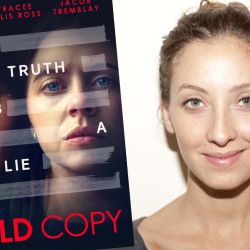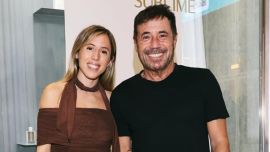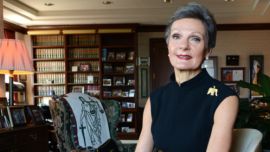In a digital age where media outlets are plagued by competition by clicks and the battle for users' attention, the truth can be harder to discern than it seems.
Cold Copy, released in the United States on January 26, is a new thriller about what it means to bend the truth to become a successful journalist. Directed by Roxine Helberg, the film tells a twisted tale about a young reporter striving for industry recognition in the face of a toxic mentor.
Mia Scott (Bel Powley), an aspiring journalism student, is adopted into the world of star-broadcast reporter Diane Heger (Tracee Ellis Ross) as her mentee. Scott dives headlong into a story about a boy whose mother took her own life, under Heger’s discretion. Igor Nowak (Jacob Tremblay) is Scott’s quiet and gentle primary source, and he channels grief related to his mother into artmaking.
As Scott crafts her story about Nowak’s life for the fictional broadcast network, the truth about Igor becomes warped, to both garner more recognition for Scott and to capture the attention of cable TV viewers. Both Heger and Scott descend into a world of betrayal, manipulation and miscalculation, something likely underscored by contemporary pressures that media outlets now face.
In an interview with the Times, Helberg spoke about the inspiration behind Cold Copy, her style as a director and what she hopes viewers will take away from the galvanizing new film.
‘Hardest form of storytelling’
Helberg studied at New York University with initial interests in journalism. She eventually transitioned to film because of the medium’s capacity to tell true stories through fiction.
“A good journalist explores the truths by relaying the facts of a situation while a filmmaker explores the truth by telling you something that never happened,” Helberg explained. “Personally, I just love the idea of being able to tell truths through fiction.”
Shot in just 20 days during 2022, Cold Copy is inspired by modern media competition and seeks to relay the terrible consequences of a cutthroat industry.
Helberg contends that journalism is “the hardest form of storytelling,” because it has to find truth in a literal sense, as opposed to the universal messages found in fiction.
Scott and Heger both use the tools of a filmmaker to pose as journalists. In Scott’s case, the film takes viewers along a terrifying roller coaster of violating ethics and manipulative behaviour, like when Scott sneaking into her source’s home after hours to capture footage of a suicide note.
“I sought out to centre the film on … this idea that the value of truth has been diminished by the structure of society, and the nature of competition,” Helberg said. “I think whatever your perspective on what is and isn't true, that depreciation has an immense effect on us as people.”
‘Cautionary tale’
While Cold Copy is an exciting contemporary thriller, Helberg said she hopes the film illustrates a detrimental “attention economy” in modern media, often perpetuated by the Internet and social media’s ongoing competition with more traditional news outlets.
Helberg sees Scott and Heger’s relationship as “a cautionary tale” of betrayal and going down the wrong ethical path, thanks to “a societal pressure to succeed.”
The director also links Scott’s character to personal experiences as a young person trying to make it in the media industry.
Helberg explained that the protagonist is “a character who feels a pressure that I also had felt.” But in Cold Copy, Scott ends up “cathartically play[ing] out the worst eventuality of that insecurity. So it almost became like a cautionary tale to myself,” she said.
The 90-minute thriller seeks to illustrate how truth can be weaponized on behalf of personal gain. And, in the meantime, it carries watchers along a gripping journey of plot twists and backstabbing.
Helberg said she hopes the film can serve as a fun ride, while simultaneously demonstrating the danger of truth manipulation to democracy, existing power structures and identity.
“I think that journalism, at its best, is the most important, elevated form of storytelling,” Helberg said. “It's the only one that has information and education as its essential goal. And I hope that with this film, and in exploring these different facets of it dark and light, we can inspire aspiring journalists to see the power and the importance of what they do.”

























Comments